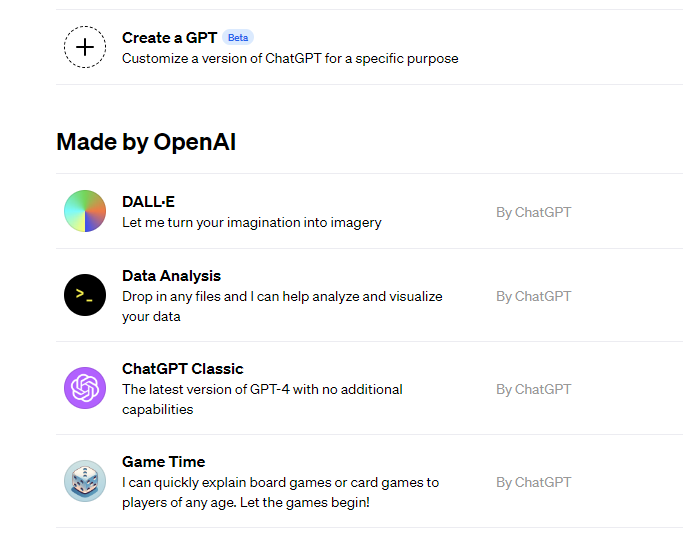Published on: June 14, 2023 Updated on: January 24, 2024
AI PhD Programs: Everything You Need to Know
Author: Alex Tyndall

The field of artificial intelligence (AI) is vast, constantly evolving, and expanding as new developments are made. But it’s also a highly lucrative industry and one that many people are joining in an attempt to gain expertise and authority.
Whilst there’s a lot to be said for practical skill development in the working world, another way to get a better understanding of artificial intelligence is through a PhD (Doctor of Philosophy). So, let’s take a look at why you’d want to do a PhD in the first place, the process to get there, and what’s available for you to study at the moment!
What is the appeal of a PhD in AI studies?
Studying is a very personal thing. So, whether you choose to do a full-time, part-time, in-person, or fully remote course, you need to make sure it’s the right choice for you. There are a number of reasons why someone may want to further their education in graduate school, including:
- Better job prospects: Furthering your knowledge around AI can put you in much better stead with employers in the field.
- Personal development: It can be worth getting a degree for personal satisfaction and genuine interest in exploring a topic. Even if you’re not directly working towards anything but are still interested, why not give it a go if you have the time and money to spare?
- Career development: Even if you’re not looking for a new job, you can still advance your current career by learning more about the field you’re working in. This can set you up as a knowledgeable industry professional and a thought leader in AI methodology.
- Exploring an idea: Joining a degree program can provide access to the latest research and knowledge, as well as high-tech equipment you wouldn’t be able to easily find commercially. This makes it much easier to explore new ideas and conduct new research, which helps propel AI development further.
What do I need before doing a PhD?
Undertaking a PhD degree is a huge task. It’s important to understand what you need before signing up for a course to see if it’s worth your time.
Let’s take a look at some of the general requirements you need before doing your PhD, as well as what other steps will help you achieve your goal.
Prior education
Depending on where you’re looking to go, you don’t necessarily need a master’s degree to complete a doctoral program. However, you will need a bachelor’s degree – preferably in a related field such as:
- Robotics
- Engineering
- IT
- Computing/Computer science
- Mathematics
Or a course specifically designed around AI research, implementation, and teaching.
Alternatively, depending on which area of AI you want to explore, it could be highly beneficial to have a strong understanding of languages and linguistics. This would be a huge help when it comes to studying natural language processing (NLP) and large-language models.
If you’re still in education, consider joining research projects in your chosen field to gain more information before moving on to graduate school. Alternatively, research those working in AI at various universities and get in touch to see if there are any projects you can help with and gain experience from.
Funding
As with all types of education, the financial aspect needs to be considered. There are many financial support programs and packages available. And figures can change depending on whether you’re entering a private or public institution or doing a course entirely online.
Take a look at whether you can join any:
- Scholarships
- Assistantships
- Awards and Honors
- STEM (Science, Technology, Engineering, Math) bursaries
There are also opportunities all over the world, so it may be worth exploring outside of your country to find better options. Thousands of American students study abroad each year, and, even if there are higher fees for international students in certain areas, you may find this a better fit than studying at home.
A solid plan
It’s highly inadvisable to enter a PhD program without a plan. Due to the highly specialized nature of PhD research, you’ll probably have to submit a research proposal to be accepted into some courses.
Make sure you know everything you can about the area you wish to study. This decision-making process will be the foundation for your research for years to come, so don’t go into something if you’re not 100% confident that it’s what you’re interested in or that you’ll get good results from.
AI is a vast field with various subfields and research areas, such as:
- Machine learning algorithms
- Natural language processing and speech recognition
- Computer vision
- Data science
- Cybersecurity
- Neural networks
- Deep learning
If you first identify your area of interest and do quality research into existing developments, you’ll know where and how to specialize in your chosen area.
Then you’ll need to look at which universities offer specific courses. It’s no good going somewhere because it sounds prestigious or flashy, only to find that you’re not doing the degree you thought you were. You’ll be spending the next three or four years studying – even longer if you decide to go part-time. Do your research and save yourself the hassle later on!
What PhD programs are available?
So, let’s take a look at what doctoral programs are currently available and if there are any prerequisites before you apply. We’ll keep the majority of our scope in English-speaking countries, although some of the best-ranking programs can be found in China, Singapore, and Hong Kong.
Keep in mind that all artificial intelligence programs and each university faculty will have a different number of credit hours, which can be useful if you are balancing work around your education.
Computer Science – Arizona State University
- Requirements: Minimum 3.5 GPA in the last 60 hours of their first BA, or minimum 3.5 GPA in an MA – GRE scores optional
- Costs: $11,720/year (in-state) or $23,544/year (out-of-state)
- Duration: 5 years
- Remote: No
Computer Science – Pace University, New York
- Requirements: MA in a related degree, plus GRE scores
- Costs: $1,420 per credit for the Seidenberg School of CSIS MS degree programs
- Duration: 3 years
- Remote: No
Autonomous Intelligent Machines and Systems – University of Oxford, UK
- Requirements: Minimum 3.7 GPA – no GRE scores or previous MA degree required
- Costs: $37,600+
- Duration: 4 years
- Remote: No
Artificial Intelligence – Capitol Technology University
- Requirements: MA in a related degree
- Costs: $950+ per credit ($883+ with military discount)
- Duration: 2 – 3 years
- Remote: Yes (optional)
Interactive Artificial Intelligence – University of Bristol, UK
- Requirements: 2:1 honors degree in a relevant subject
- Costs: $32,100+
- Duration: 4 years
- Remote: No
Artificial Intelligence – Oregon State University
- Requirements: BA or experience in computer programing, plus college-level courses in linear algebra and calculus
- Costs: $557 per credit (in-state) or $1,105 per credit (out-of-state)
- Duration: 4 years
- Remote: No
Computing and Information Sciences (AI Research) – University of Texas
- Requirements: MA in computer science or related field, minimum 3.5 GPA, GRE scores
- Costs: $12,036 (in-state) or $22,952 (out-of-state)
- Duration: 3 years
- Remote: No
Computer Science and Data Analytics – University of British Columbia, Canada
- Requirements: 3.3 GPA and MA (or equivalent) in a related degree
- Costs: $9,500.19 per year
- Duration: 6 years
- Remote: No
What comes next?
Unfortunately, you’re not done just yet. You still need to prepare your application, gather letters of recommendation, and take any standardized tests such as the GRE (Graduate Record Examination) or TOEFL (Test of English as a Foreign Language) if English is not your first language.
And don’t forget that after all your coursework, and doctoral research is complete at the end of your PhD, you still have to defend your doctoral dissertation to fellow scholars and educators. No pressure!
It’s not easy being a PhD student, but it can be an incredibly rewarding process and just what you need to set you on the right career path. With a degree in AI and computer science, you could become a:
- Machine learning engineer
- Data scientist/analyst
- Robotics engineer
- AI consultant
- Software engineer
But the application of AI means that it can be incorporated into any field, such as healthcare, teaching, or agriculture. So, no matter what interests you, there will be a way to combine it with a PhD in machine learning and AI.
Final thoughts
It’s okay if you’re not ready to start a PhD program just yet – there’s no set time that you have to do one. If you’re done with education for now, why not try out an AI graduate program? This can give you valuable industry knowledge and practical experience, boosting your university application later.
But remember, whether you’re happy with just your undergraduate degree for now or want to take things a step further in your studies, always do your research beforehand!
In the meantime, for more news and updates in the world of AI, stay in touch with Top Apps!
Alex Tyndall
With a passion for exploring the latest apps and software, she brings a wealth of knowledge to her role as a professional writer at TopApps.ai.
Recent Articles

Artificial Intelligence (AI) is everywhere, but for many, it remains a mystery. What exactly is AI, and how does it impact our daily...
Read More
Interested in sharpening your AI knowledge base? We have all the best advice for staying ahead of the latest AI innovations and trends...
Read More
Learn how OpenAI's GPT Builder transforms coding, content creation, and more. Uncover its user-friendly side and dive into a future of AI accessibility...
Read More